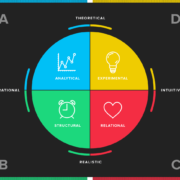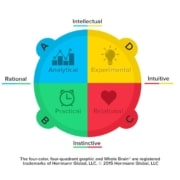5 Benefits of Executive Coaching
5 Benefits of Executive Coaching
Executive coaching is an important tool of leadership development because it allows those in positions of leadership the opportunity to become responsible for their own learning and development. It differs from other leadership development programs in that it can be a much more collaborative experience between participant and coach. Executive coaching provides an individually tailored approach to helping leaders understand their strengths, how they are perceived by others, as well as creating a safe space for them to grow and work through new ideas. All of this is crucial for leaders who may benefit from the presence of a trustworthy environment in which they can be supported. It also provides a safe place for leaders to take time out and reflect on past, present and future events and that helps minimise risk and maximise opportunities for the leader and the teams they are responsible for.
Navigate Change
Change is constant in all areas of life, but particularly in business. Organisational change can be difficult to implement without the skills to do so. Executive coaching can be a beneficial resource during times of change or transition to aid managers in leading their teams through it.
Objective Support and Feedback
Executive positions come with the expectation that they will hold the answers to questions posed by their teams. What tends to happen far too often is that the higher a position a leader holds within an organisation, the more difficult it is to receive support. This support can be given by executive coaches who take on a mentor role for leaders. They provide a confidential space that allows leaders to work through issues, new ideas, and make decisions. The objectivity of executive coaching means they can provide constructive feedback free from any potential agenda. Their feedback may stem from their own observations of the organisation or executive coaching programs like the Hogan 360 Report.
Customised Leadership Development
The benefits of coaching encompass the development of critical leadership skills and qualities with time and space dedicated to providing leaders with the opportunity. While there are countless leadership development options available, not all of them will be beneficial to all organisations or indeed, all leaders. Executive coaching programs focus on providing tailored solutions that meet the specific needs of the individual and their position. By customising the executive coaching program to the individual, leaders can achieve their goals and have an easier time incorporating their learning into the workplace.
While there are countless leadership development options available, not all of them will be beneficial to all organisations or indeed, all leaders.
Improved Productivity to Achieve Results
A main objective of leadership is to ensure that you and your team achieve results. Coaching programs help to enhance goal management and achievement by strengthening skills in performance, support and productivity. Productivity is particularly important for achieving results. There has been a prevalent culture in business of working later and longer in order to ‘prove’ our dedication and commitment; when often all this does is overwork us, create stress, lead to poorer quality work, and in fact, decrease productivity. Executive coaching provides refreshed solutions to bettering work-life balance and productivity that directly leads to achieving results.
Builds Confidence
No matter who we are, or what position we hold within our organisation, we are all prone to self-doubt every now and then. As leaders, we often feel as though we aren’t ‘allowed’ to be anything less than completely confident at all times. When we don’t, we may begin to overthink or second guess our skills as a leader. Executive coaching provides the opportunity for you to strengthen your existing skills in a way that encourages you to take ownership of your development and become confident in utilising your abilities in the workplace. Coaches can also help leaders to remain balanced over time and deal with the ups and downs that are all part of being a leader!
The benefits of coaching are far reaching not only for the participants, but the teams they lead. Great leaders can not begin or continue to serve their teams without also attaining support themselves. When leaders have the confidence to realise their full potential, they can better navigate challenges and assist their team in reaching goals. For this reason, The Leadership Sphere understands the importance of creating customised programs that are based on leveraging strengths and addressing capability gaps identified using the assessment tool that best suits your situation.
For more information about The Leadership Sphere and how we can help you unlock performance through leadership, by supporting your leaders at every level of the organisation with leadership development, executive coaching and high performance team programs please visit our website or call us on 1300 100 857.
















